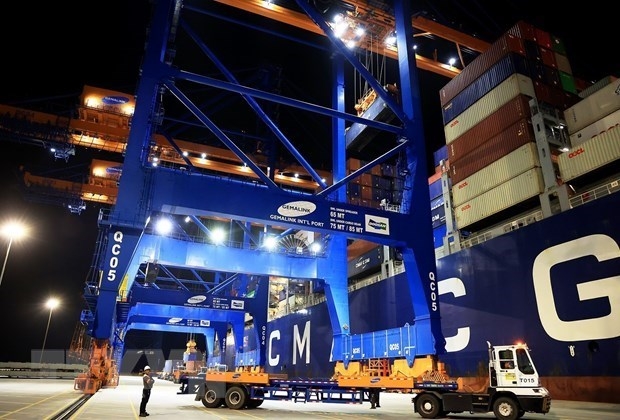HCM City business group suggests economic pump-priming measures
The Ho Chi Minh City Union of Business Associations has proposed authorities to resolve difficulties faced by businesses suffering from a sharp drop in export orders.

The city’s export in the first quarter of the year is estimated at US$10.1 billion, a year-on-year decline of 16.8%.
According to HUBA, most industries struggled to maintain production and do business.
Nguyen Phuoc Hung, its permanent vice chairman, said the biggest difficulties faced by export firms, especially in the woodwork and garment and textile industries, are a lack of export orders and cash flows and inability to borrow from banks.
Businesses are also virtually unable to borrow from the Government’s lending package that offers interest rate subsidies of 1.5-2%, he said.
Agricultural land is appraised at very low by banks, so when firms apply for loans using agricultural land as collateral, they will get a very small loan that is not enough to serve their production and business needs.
In addition, the mortgaged asset value for their existing loans was reduced significantly, requiring them to have additional collateral but they almost have no more asset to do that.
HUBA's surveys have found 41.2% of firms saying they are facing difficulties due to the shrinking market, 17.6% due to higher raw material prices, 11.2% due to human resource shortage and 17.6% due to lack of capital.
Enterprises said though the Government has many supportive policies for economic development, beneficiaries are few in reality, with less than 10% of businesses benefiting from financial support.
Small and medium-sized enterprises often lack assets to mortgage, HUBA said.
It wanted the Government to address this issue by valuing agricultural lands at market prices, increasing the ratio of loan to mortgaged assets, and offering unsecured loans.
It said the State Bank of Vietnam should continue to roll over medium- and long-term loans, and bring down bank lending interest rates.
It called on the Vietnam Bank for Social Policies to provide businesses with low-interest rate loans so that they could pay wages to employees, which would boost purchasing power and benefit the consumer market.
It said the city should promote the 2% interest subsidy programme from the SBV, and direct relevant agencies to organise programmes to link businesses and banks to easy the credit bottlenecks.
The city needs to enhance ties with Vietnamese trade agencies abroad to help foster investment and trade with foreign markets, it added.
